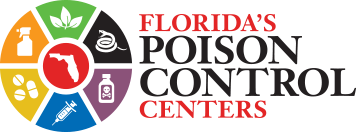For Animals
Tips to Protect Your Pets
Thousands of animals are accidentally poisoned every year. Pets can be exposed to poison in many ways, such as chewing the leaves of a household plant, licking pesticide or antifreeze from the floor or eating human medication.
Foods to Avoid
- Garlic
- Onions
- Macadamia nuts
- Chocolate
- Foods with high fat and sugar content
- Products sweetened with xylitol
- Avocado
- Coffee
- Raisins and grapes
- Salt
- Yeast dough
- Spoiled food
- Alcohol and other drugs
Poisons to Keep Away From Cats and Dogs
- Polyurethane craft glue
- Nicotine/tobacco products
- Batteries (alkaline, disc, etc.)
- Antifreeze and automotive liquids
- Medicine (prescription, over-the-counter, herbal)
- Mothballs
- Pesticides
- Houseplants
- Cleaners
- Human personal care products
Emergency Pet First Aid Kit
Having an emergency pet first aid kit can provide valuable peace of mind in an emergency. These supplies may be useful after a poisoning:
- A fresh bottle of hydrogen peroxide, 3% USP (to induce vomiting, if advised by a veterinarian)
- Turkey baster, bulb syringe or large medicine syringe (to administer peroxide)
- Saline eye solution
- Artificial tear gel (to lubricate eyes after flushing)
- Mild grease-cutting dishwasher liquid (for bathing an animal after skin contamination)
- Forceps (to remove stingers)
- A muzzle (to protect against fear- or excitement-induced biting)
- A can of your pet’s favorite wet food
What if a Poisoning Occurs?
Get the poison away from the pet. Brush or wash off the snout and fur to remove the poison if needed. Rinse out the mouth, if it can be done safely. Remove the food dish. Keep a bottle of hydrogen peroxide 3% solution available. Do not induce vomiting unless your veterinarian instructs you to do so. For more information, visit the Association for the Prevention of Cruelty to Animals.
Poison control centers have basic information about animal toxicology and may be able to help. If the poison specialist feels that the poisoning is beyond his or her expertise, they will advise you to select from the fee-for-service animal poison control hotlines or contact your own veterinarian. These hotlines include the ASPCA Animal Poison Control Hotline at 1-888-426-4435. There may be a charge ($95) for this call. Veterinary specialists are available for advice. The Pet Poison Helpline is also available at 1-855-764-7661. This service costs $75 and is staffed by veterinarians with particular expertise on managing animal poisonings.
Signs of a Poisoning
- Weakness or extreme sleepiness
- Abnormal behavior
- Drooling or vomiting
- Shaking or convulsions
- Swelling lips or tongue
- Diarrhea
Links
Download Our Fact Sheet
Download Our Pet Safety Fact Sheet
This information can be easily viewed and shared in our pet safety fact sheet. Download and print a copy to keep in your emergency pet first aid kit for easy reference in case of an emergency.

